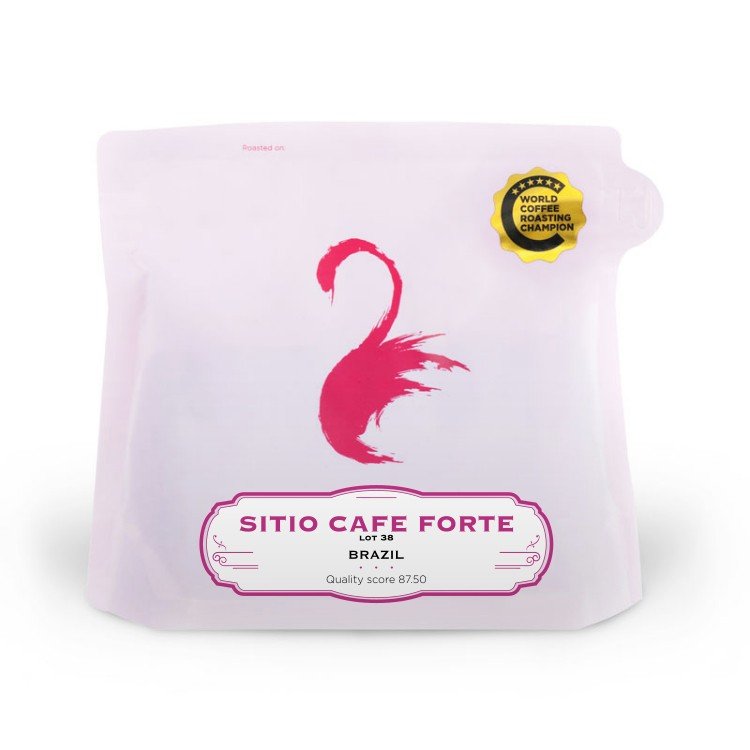





Brazil
250g
Cup Notes
Dark Chocolate / Red Berries / Creamy
Suggested for espresso and filter
QUALITY SCORE: 87.50
when we roast
We freshly roast to order all coffees on Monday, Wednesday and Friday (excluding national holidays), and ship the same day! Cut-off time is 11:59pm (UTC+1) of the day before the roast day. *We only ship whole beans*
The small, mountainous Serra da Canastra microregion is nestled between the large coffee regions of Cerrado Mineiro and Sul de Minas. The area is most known for its fine cheeses made from local milk, but the region’s natural resources also make it an exceptional region for growing coffee. Its producers take great pride in all they grow and make.
Paulo Henrique Cruz, better known as Paulinho, is one of the people best suited to explain what makes Serra da Canastra special. His 30 hectare coffee farm includes processing and warehousing facilities. Paulo’s previous work in Piumhi, Minas Gerais and as the manager of a farm in the region of Confuaso prepared him to take on the task of running his specialty coffee operation.

A vigorous and productive plant with good quality cup but susceptible to major diseases. Grown widely in South America, but rarely in Central America and the Caribbean.
Mundo Novo is a natural hybrid of Typica sub-varieties, Sumatra and Bourbon. Originally discovered in Brazil in the 1940s by the Instituto Agronômico de Campinase, the plant is strong, tall (3 m) and resistant to diseases and strong wind. Due to these features and its good cup quality, Mundo Novo is one of the most common amongst Brazilian coffee cultivators, forming around 40% of all grown coffee varieties within the country.
Mundo Novo’s productivity is high (to some accounts, 30% higher than that of Bourbon), but its cherries ripen somewhat later than other varieties. Its best growing heights are between 1,050 to 1,670 metres above sea level, with rainfall of 1,200 to 1,800mm per annum.

Dry process seems simple: pick the fruit, lay it out in the sun until it turns from red to brown to near-back, and then hull off off the thick, dried outer layer in one step to reveal the green bean. It is a method suited to arid regions, where the sun and heat can dry the seed inside the intact fruit skin. It's often referred to as "natural coffee" because of its simplicity, and because the fruit remains intact and undisturbed, a bit like drying grapes into raisins. Since it requires minimal investment, the dry process method is a default to create cheap commodity-grade coffee in areas that have the right climate capable of drying the fruit and seed.
But it’s a fail in humid or wet regions. If the drying isn't progressing fast enough, the fruit degrades, rots or molds.
Dry-processed coffees can also be wildly inconsistent. If you want a cleanly-fruited, sweet, intense cup, dry process (DP) takes more hand labor than the wet process. Even the most careful pickers will take green unripe or semi-ripe coffee off the branch as they pick red, ripe cherry. If these are not removed in the first days of drying, the green turns to brown that is hard to distinguish from the ripe fruit.
